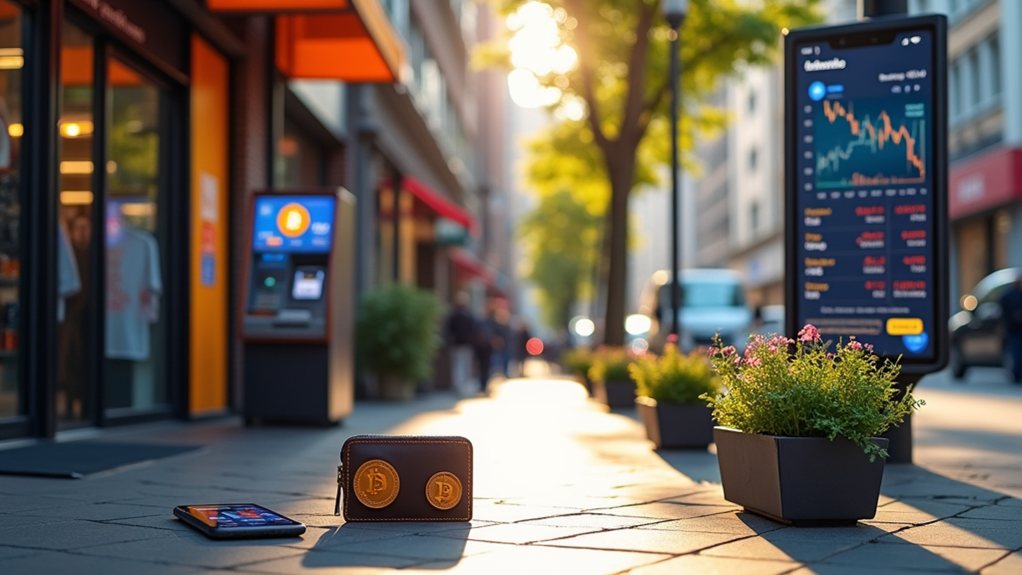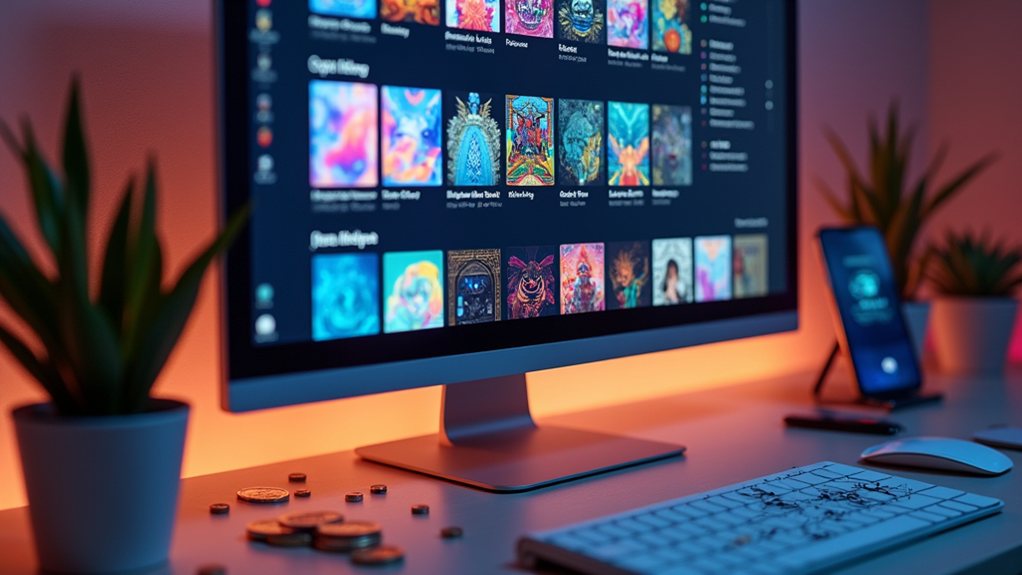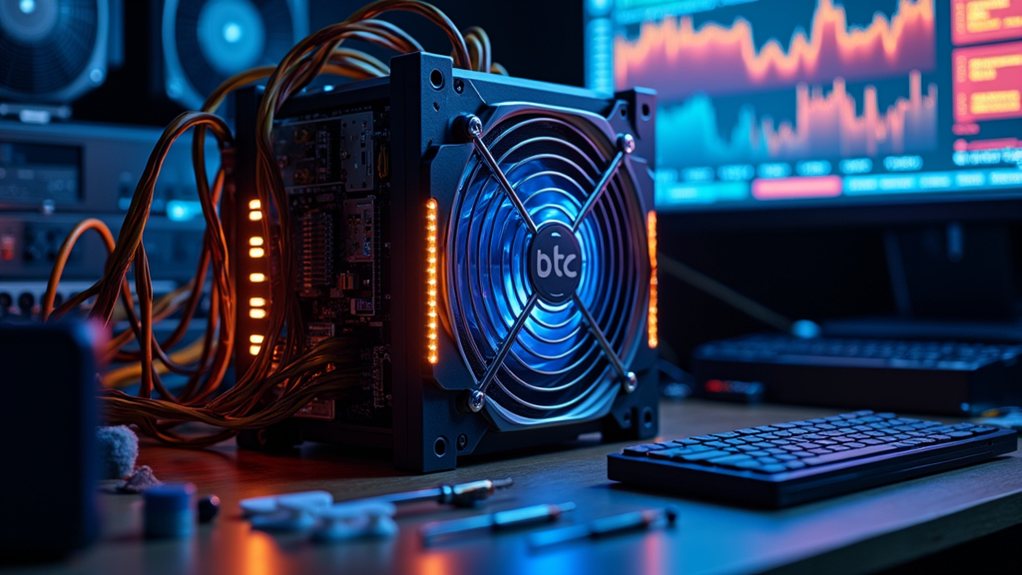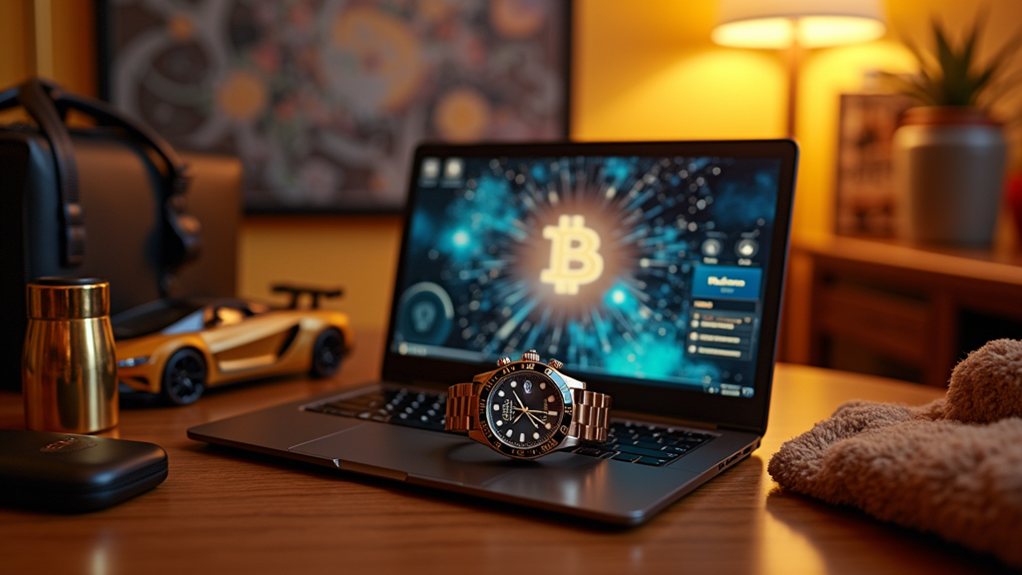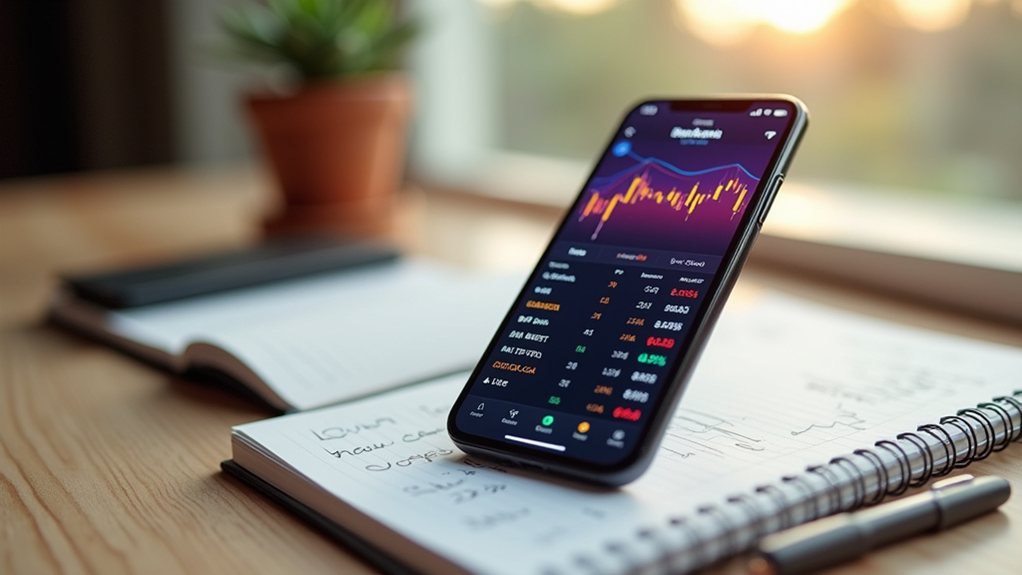Bitcoin's getting easier to snag in 2025. Major exchanges like Coinbase and Binance dominate with millions of users. Bitcoin ATMs are everywhere—41,000+ globally. P2P marketplaces skip the middleman entirely. North American mining operations boom despite costs. Reward programs from Lolli and Fold offer crypto kickbacks for everyday spending. Lending platforms pay interest on holdings. Investment vehicles let traditionalists play too. The crypto landscape's evolved—big time.
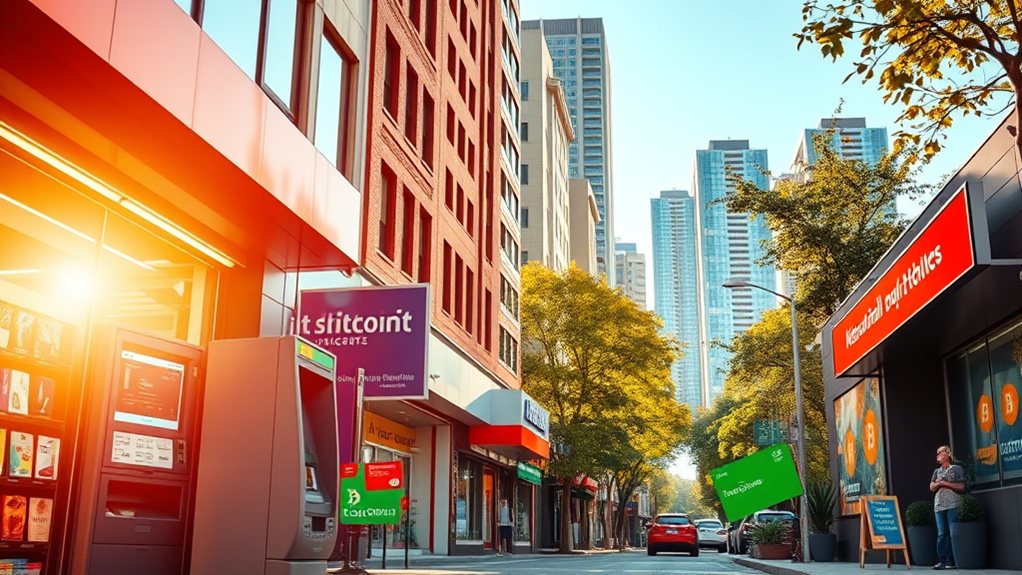
Where can someone actually get their hands on Bitcoin these days? The crypto landscape has exploded since Bitcoin's early days. No more sketchy forums or complicated technical setups required. The options in 2025 are abundant, accessible, and surprisingly mainstream.
Cryptocurrency exchanges remain the go-to method for most people. Coinbase dominates the US market with a staggering 98 million users. Not to be outdone, Binance boasts the highest global trading volume with over 90 million users worldwide. Kraken, one of the OG platforms founded back in 2011, now serves 9+ million users across 190 countries. The Winklevoss twins' Gemini has amassed 13.6 million users. Even FTX US has managed to attract over a million users despite being just the regulated American subsidiary of its parent company. Most of these platforms operate as centralized exchanges with dedicated teams managing security and user verification processes.
The big exchanges reign supreme, with Coinbase's 98 million users and Binance's global dominance reshaping how millions access Bitcoin.
Bitcoin's remarkable all-time high of over $109,000 in January 2025 has attracted even more users to these platforms.
Bitcoin ATMs have popped up everywhere. Seriously, everywhere. There are now over 41,000 of these machines globally. Major operators like Bitcoin Depot, CoinCloud, and CoinFlip have planted these cash-to-crypto converters in convenience stores, malls, and gas stations. They're not cheap though—fees typically range from 6-12%. But they're convenient for quick purchases, usually allowing transactions up to $10,000 daily.
Prefer the human touch? Peer-to-peer marketplaces connect buyers directly with sellers. LocalBitcoins, founded in 2012, now serves 7.5 million users globally. Paxful offers an impressive 350+ payment methods to its 6+ million users. Platforms like Bisq skip the know-your-customer requirements entirely. HodlHodl provides non-custodial P2P trading, while LocalCoinSwap supports a ridiculous 250+ payment methods.
For the industrious types, mining Bitcoin remains an option. North America now hosts over 50% of Bitcoin's hash rate following China's mining ban. Companies like Core Scientific, Marathon, and Riot lead public mining operations. The average cost to mine one Bitcoin runs between $12,000-$15,000. Home mining can still be profitable if your electricity costs less than $0.06/kWh. Not likely for most people. With Bitcoin trading at approximately $105,000 and the cost-to-mine around $27,000 for larger operations, the economics remain quite favorable for institutional miners.
Shopping for groceries? Get Bitcoin. Using a credit card? Get Bitcoin. Several reward programs now offer Bitcoin instead of traditional points. Lolli partners with over 1,000 merchants offering 1%+ Bitcoin back. Fold's Visa debit card lets users spin a wheel for Bitcoin rewards between 1-100%. BlockFi provides a credit card with 1.5% Bitcoin rewards. Some platforms like Celsius offer up to 17% APY on crypto deposits. Crypto.com's Visa cards provide up to 8% cashback in crypto form.
The crypto world isn't the wild west anymore. It's become suburban, with white picket fences and all.
Frequently Asked Questions
How Much Initial Investment Is Needed for Bitcoin Mining?
Bitcoin mining requires serious cash.
Initial investment? Anywhere from $2,000 to $20,000+. Basic GPU setups start around $1,500, while professional ASIC operations can hit $15,000 easily.
Don't forget cooling systems ($500-$2,000) and beefy power supplies ($200-$500).
Then there's the electricity bill—brutal. Some miners spend $10,000-$30,000 on solar setups just to avoid monthly costs.
Mining ain't cheap, folks. Never was.
Can I Mine Bitcoin on a Mobile Device?
Mining Bitcoin on mobile devices is technically possible but completely impractical.
The computational demands are enormous, and smartphones simply can't compete with specialized ASIC hardware. Your phone would overheat, drain battery instantly, and possibly get damaged.
After months of trying, you might earn pennies. Some cryptocurrencies like Monero or Electroneum are more mobile-friendly, but Bitcoin? Forget it.
Not worth destroying your device for literal pocket change.
Are There Age Restrictions for Bitcoin Mining?
Mining Bitcoin has no universal age restrictions. The act itself? Legal for any age.
But the reality's more complicated. Exchanges typically require users to be 18+, thanks to KYC regulations. Minors face practical hurdles too—limited access to bank accounts, complex equipment setup, and high electricity costs.
Some jurisdictions have specific age requirements (South Korea: 19+). Most young miners need parental consent and supervision.
The regulatory landscape remains patchy and evolving.
How Do Taxes Work on Bitcoin Findings?
Bitcoin "findings" are taxed based on how they're acquired.
Mining? Ordinary income when received, then capital gains when sold.
Buying and holding? Only taxed when sold.
Every sale, trade, or purchase using Bitcoin triggers a taxable event.
The IRS classifies it as property, not currency.
Keep meticulous records. The government always wants its cut.
Long-term holds (over a year) get better tax rates than short-term transactions.
What Security Measures Protect My Found Bitcoin?
Found Bitcoin requires serious security.
Hardware wallets keep private keys offline—hackers can't touch 'em.
Multi-signature setups demand multiple authorizations, perfect for paranoid types.
Encryption isn't optional; it's survival.
Cold storage practices? Non-negotiable.
Air-gapped computers, steel-plate backups, geographically scattered duplicates.
Without these measures, kiss those digital coins goodbye.
Security isn't just recommended—it's the difference between holding wealth and sobbing over stolen funds.

